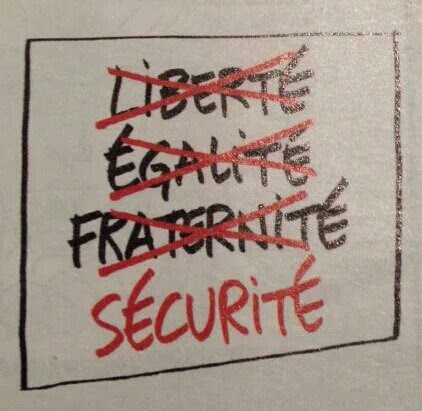Und weil er so ein gutmenschlicher, linksgrünversiffter Altachtundsechziger ist, hat er sicher auch nichts dagegen, dass ich mir seine Aussage auf Facebook zur Gänze raubmordkopiere (obwohl ich sein Verständnis von Textlayout nicht teile). Go, Konstantin, go!
Liebe Freunde,
heute morgen, nach der ZDF Sendung „Volle Kanne“, bin ich, wie zu erwarten, wegen meiner Einstellung zur Willkommenskultur, im Netz und per Mail wieder mal heftig und derb beschimpft worden.
Ich nehme den Fehdehandschuh nun doch einmal auf.
Nicht hasserfüllt.
Einfach um es noch einmal klarzustellen.
Liebe HasskommentatorInnen, BeleidigerInnen, BeschimpferInnen – ich mache mir eure Beleidigungen gerne zu eigen. Jede einzelne sei hier in Gänsefüßchen angeführt:
Ja,
Ich bin ein „Gutmensch“.
Gefällt euch Schlechtmensch besser? Warum habt ihr nur so viel Widerwillen gegen den Versuch, Güte und Mitgefühl in politisches Engagement einzubringen?
Und ja,
ich bin ein „linksgrünversiffter Altachtundsechziger“,
und ich kämpfe weiterhin für eine gewaltfreie Revolution des Bewusstseins.
Und ja,
ich bezeichne alle Fremdenhasser und Rassisten, die sich der Parolen und Wahnvorstellungen der Nationalsozialisten bedienen, als „Nazis“.,Auch wenn die Betreffenden es immer wieder von sich weisen. (Warum eigentlich? Ist es euch doch peinlich?)
Ja, ich bin „weltfremd“,
denn eure Welt ist mir fremd und ich bin froh darüber.
Wer „zuviel Mitgefühl hat, hat keinen Verstand“?
Ich verzichte nur all zu gern auf euren vom Menschsein getrennten Verstand.
Verstand ohne Mitgefühl führt zum Wahnsinn.
Man kann das ganz gut am derzeitigen Zustand unserer Erde beobachten.
Und ja,
ich bin auch ein „Vaterlandsverräter“ – denn „ein ganzes Land als Vater war schon immer eine Lüge…“ – mit dem Wort Vaterland kann ich nun mal nichts anfangen und Nationalismus ist eine üble Seuche, die wir spätestens seit 1945 hätten überwinden müssen.
Und ja,
ich bin „naiv“,
denn wie kann man euer Weltbild ertragen, ohne naiv zu sein?
Und einzig diese Naivität erlaubt mir auch, mit eurer verängstigten Seele mitzuempfinden
Und:
Ihr selbsternannten Realisten habt keine Ahnung von der Wirklichkeit.
Eure angsterfüllte, sogenannte Realität gleicht einer Arachnophobie. Ihr wisst doch: die kleinste Spinne füllt für jemanden mit übersteigerter Angst vor Spinnen den Raum im eignen Hirn, als wäre sie eine lebensgefährliche Bedrohung.
Er nimmt nichts anderes mehr wahr als die Panik, die ihm sein Hirn vorgaukelt.
So nimmt euch die Angst vor den Flüchtlingen, vor dem Fremden, vor dem Anderen, Neuen und Unberechenbaren gefangen.
Und das nennt ihr dann Realität.
Da hilft kein Söder, keine AfD, und auch ein Bachmann nicht -
da hilft nur noch ein Psychiater.
Solange ich bei Kräften bin, werde ich mich gegen euer Weltbild zur Wehr setzen.
Als Pazifist.
Als Humanist.
Als Antifaschist.
Als radikaler Demokrat.
Als Mensch.
Und nun wende ich mich wieder mit großer Freude meinen Freundinnen und Freunden, den Gutmenschen zu.
Denn jede noch so kleine helfende Geste dieser Menschen ist wichtiger als euer Gebell im Wald eurer Phobien.
(via peter)





 Artikel als RSS
Artikel als RSS
